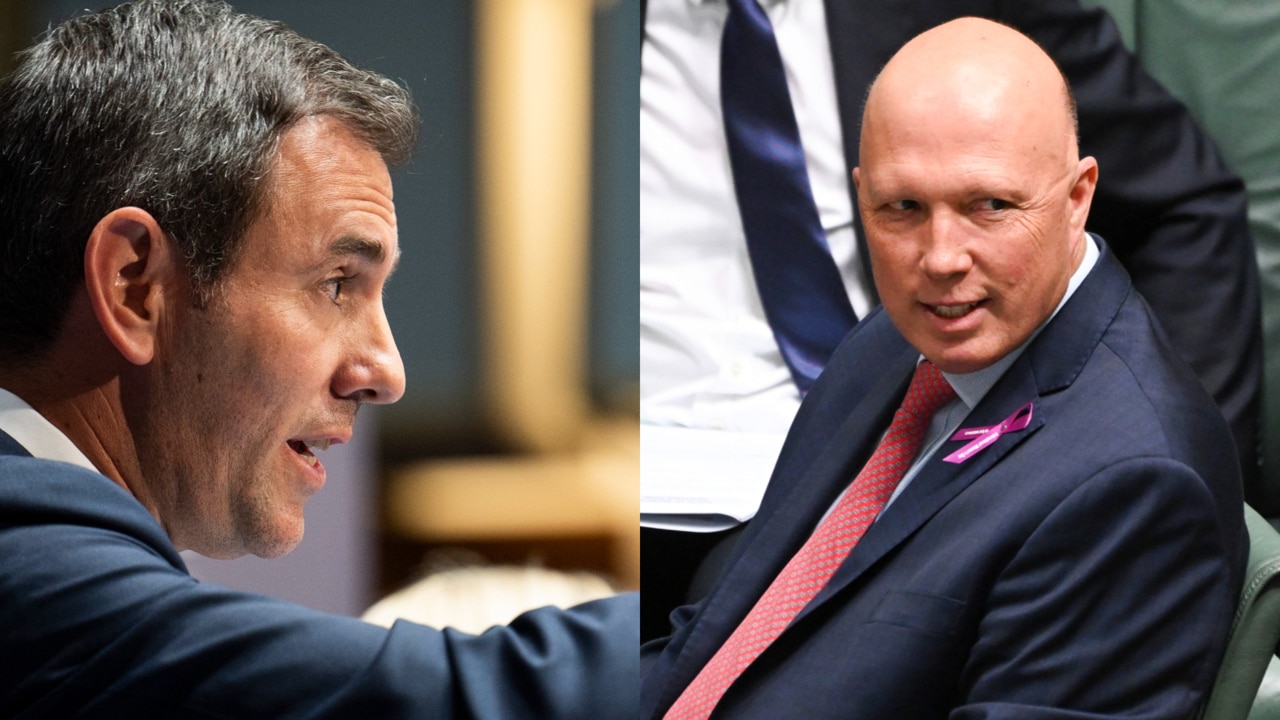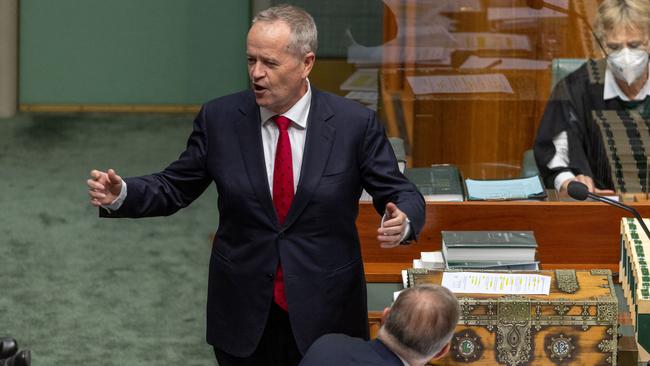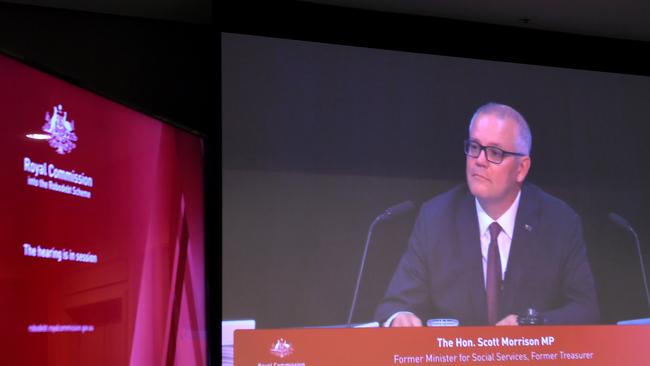Key question remains unanswered after robodebt royal commission
In the wake of the damning findings from the robodebt royal commission, one key question remains unanswered.

The robodebt royal commission, which handed down its findings on Friday, July 7, has dominated headlines all week.
Such a reaction to the commission’s findings was perfectly foreseeable: Despite its illegality, from the moment of its inception in 2015, the scheme sent out more than 400,000 unlawful debt notices to Australian welfare recipients.
This practice, which illegally recovered $750m, became the focus of intense media reporting in 2016 as a result of the emotional and financial toll it was having on some of Australia’s most vulnerable citizens and was even linked to multiple suicides.

For many people, it was hard to believe that the federal government could be responsible for such a serious breach of trust.
In the more powerful words of commissioner Catherine Holmes, it has “served the purpose of at least bringing into the open an extraordinary saga, illustrating a myriad of ways things can go wrong through venality, incompetence and cowardice”.
The media headlines have focused squarely on a handful of former ministers in the Coalition government, in particular former prime minister Scott Morrison, who Ms Holmes accused of misleading cabinet over the scheme.
Former ministers Christian Porter and Stuart Robert as well as senior public servant Kathryn Campbell were other public figures to have come under heavy criticism.
But amid intense scrutiny that has fallen on individuals, one question remains largely unanswered: What can be done for the hundreds of thousands of victims who, unlike the Coalition ministers forced to front the royal commission that were able to draw on $2.5m from the taxpayer in legal costs, remain voiceless?
The report contained a well-publicised “sealed section” that recommended individuals for civil and criminal prosecution; however, those names have not been released in order not to prejudice any possible future court cases.
But the prosecution of individuals does not ensure justice for the victims of the scheme in terms of financial and psychological harm.
Melbourne-based law firm Gordon Legal has written to Prime Minister Anthony Albanese and publicly raised the question of pursuing a rarely used legal claim.
The firm has confirmed it is investigating whether government ministers and senior public servants could be sued under what is known as the tort of misfeasance in public office.
But before we get there, here’s a quick refresher on what the commissioner found in her landmark report last week.

‘Remarkable’ failure
Put forward as a budget savings measure in 2015, what became known as robodebt began under a Coalition government keen to trim the fat on the federal government’s significant welfare bill.
The scheme was supposed to recover debts from welfare recipients dating back to 2010, a task it was going to carry out through a process known as “income averaging”.
But as Ms Holmes noted, the process of income averaging, the practice of matching past welfare payments to tax returns and identifying any discrepancies, was not accurate or legal under the Social Security Act.
“It is remarkable how little interest there seems to have been in ensuring the scheme’s legality, how rushed its implementation was, how little thought was given to how it would affect welfare recipients and the lengths to which public servants were prepared to go to oblige ministers on a quest for savings,” she wrote.

The question of compensation
After three volumes, more than 900 pages and a public hearing process that interviewed more than 100 witnesses, including two former prime ministers, one of the key findings of the report would have disappointed many.
Ms Holmes wrote: “I have given long and careful consideration to whether there is any practical way of setting up some sort of compensation scheme.
“My reluctant conclusion is that there is not.”
The commissioner found that there were hundreds of thousands of people impacted by the scheme and, as such, it would be “impossible” to establish an even criteria for compensation.
She wrote that not only were people affected in different ways, not every victim suffered as a result of income averaging, and even in the cohort that did, there were many different groups.
But it was another observation, made slightly further down in the report, that has captured the attention of a law firm with form in this area.
“On the evidence of the commission, the tort of malfeasance appears to be made out,” Ms Holmes wrote.

Misfeasance in public office
In an interview this week, a partner at the same law firm that settled a $1.8bn case against the government in 2021 said they were investigating whether the tort of malfeasance, or misfeasance in public office, could be established in light of the commissioner’s report.
James Naughton, partner in commercial law and class action at Gordon Legal, said misfeasance in public office occurred when a public officer, which can include a minister, has either misused their office intentionally, has intended to cause harm to somebody, has acted in excess of their power or has been wilfully blind to the harm they are causing.
“What the royal commission uncovered was evidence about what relevant ministers and some senior public servants know about the lawfulness or unlawfulness of the scheme at particular points in time and what steps they took to actively inquire as to lawfulness or unlawfulness of the scheme,” Mr Naughton said.
“They’re important legal questions because the answer to that might impact upon whether those persons were acting properly in accordance with their ability to exercise power under their public roles – and that’s what we’re looking at.”

“In particular, the royal commissioner did make a comment in the report that some elements of misfeasance may be made out based on what was found … But the commissioner didn’t draw any firm conclusions either way – it was just an observation.”
Mr Naughton said that misfeasance in public office was not a claim that was often made; however, it had been raised in Australian cases in the past.
The most prominent example was a federal-court case in 2020 that ordered the government to pay nearly $3m in damages to Brett Cattle Company.
The court found that a 2011 decision by then federal agriculture minister Joe Ludwig to ban live exports to Indonesia had been made recklessly and amounted to misfeasance in public office.
“Certainly, there is a history of it being used when ministers go outside of their powers or public servants go outside of their role or a sort of reckless as to how their decisions might act upon people and cause them loss and damage,” Naughton said.

Key players
Of all the former government ministers named in the report, former Mr Morrison and Alan Tudge, who was the minister for human services during the critical years of 2016 and 2017, have come under the heaviest scrutiny.
Ms Holmes said Mr Tudge, who quit the parliament in April, had abused his power as a minister by leaking stories to the media with the intention of discrediting mounting criticism of the scheme.
“Mr Tudge’s use of information about social security recipients in the media to distract from and discourage commentary about the scheme’s problems represented an abuse of that power,” she said.
Ms Holmes said Mr Morrison had misled cabinet over the details of the scheme.
Mr Morrison was appointed to the portfolio as social services minister in December 2014 when his political star was on the rise, in particular after what was seen as a highly successful period as the minister for immigration and border control.
In this position, he was the public face of the Abbott government’s popular Operation Sovereign Borders, which banned all refugee vessels arriving in Australia by sea.
Mr Morrison promised a similar take-no-prisoners approach in his new role, an attitude Ms Holmes noted by referring to a 2015 interview in which he promised to be a “strong welfare cop on the beat” because Australians were “not going to cop people who are going to rort (the social security) system”.
He came under heavy criticism in the commissioner’s report for failing to ensure that when the scheme was signed off, he had properly informed cabinet about what the new proposal would entail and whether it was legal.
“(Mr Morrison) failed to meet his ministerial responsibility to ensure that cabinet was properly informed about what the proposal actually entailed and to ensure that it was lawful,” she wrote.
It is important here to note that both Mr Morrison and Mr Tudge have strongly denied any wrongdoing or impropriety.

Mr Tudge said he “strongly” rejected Ms Holmes’ view that he had abused his power in the media.
“At no stage did I seek to engage in a media strategy that would discourage legitimate criticism of the scheme,” he said in a statement after the report was handed down.
“It is part of a minister’s role to publicly defend government policy when that policy is subject to criticism.”
Mr Morrison said the commissioner’s findings were “unsubstantiated” and contradicted by evidence heard during the inquiry.
“I acted on good faith and on clear and deliberate department advice that no legislation was required to introduce the scheme and presented comprehensive evidence to support this position,” he said.
“The rigorous cabinet processes were followed and satisfied for this measure and as the minister for social services, I was constitutionally and legally entitled to assume the officers of the departments had complied with their obligations under the Public Service Act to advise their respective ministers.”
Originally published as Key question remains unanswered after robodebt royal commission


